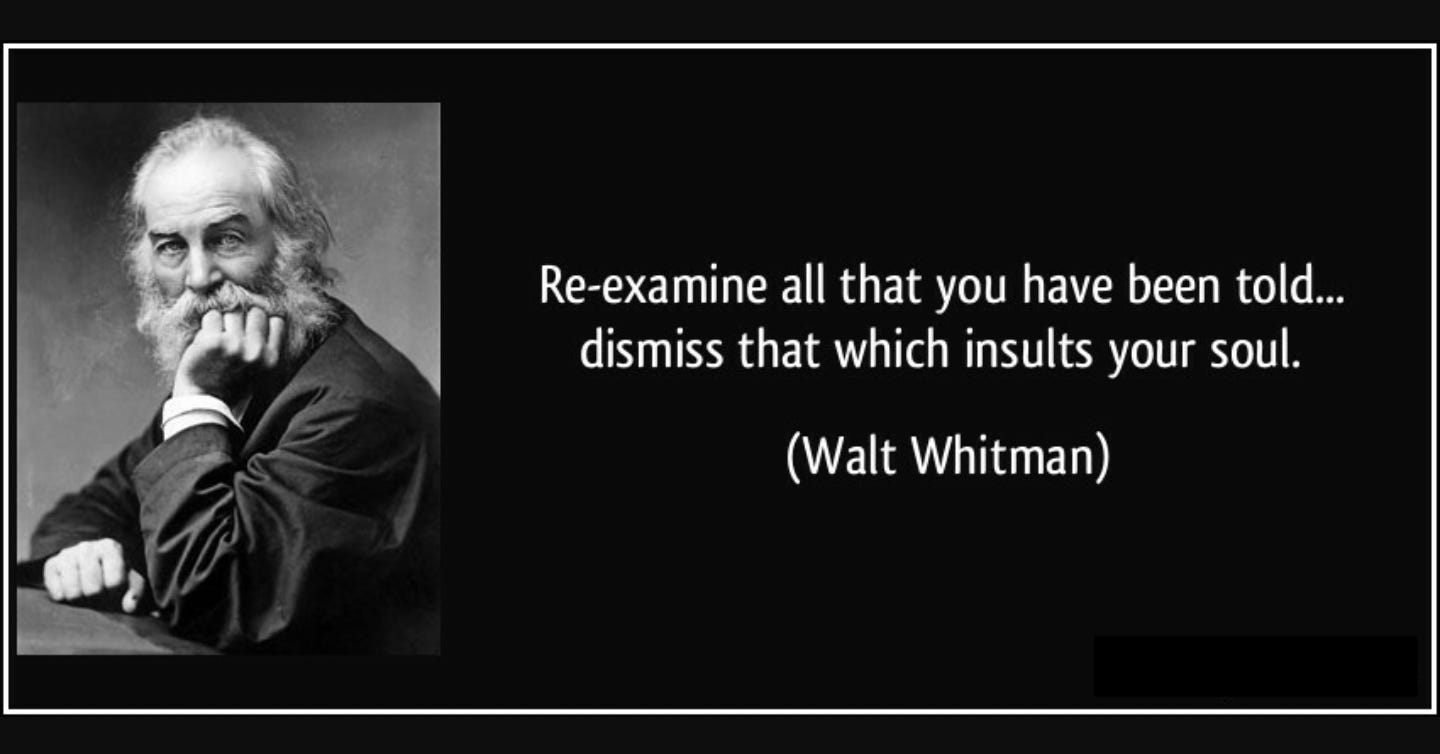Stories We Tell Ourselves - A Self Esteem Odyssey
I want to know your opinion. What is your overall impression of yourself? What words describe the kind of person you are? I can probably guess but I know there's more hiding underneath. I see you.

Not trying to be a show off but years of doing therapy does build up quite the database of patterns about people. It's true that every individual is unique but equally true that we are all made from the same stuff. It's like burgers - there are fancy ones and then just good old plain ones. Different grills, temps, and dressings all build from the basics. Humans are born, struggle, have relationships and jobs, pay taxes and die. We all age and get wiser. Lots of varieties from the same foundation.
The Template - Stories You Tell
The story begins immediately - you're born into a body, a set of circumstances and a group of people (usually called your family). You're told about the world and who you are. Fun experiences tell you what you like and painful ones tell you what to avoid. You learn through experiences and try to make sense of them. Slowly stacking up through childhood, these experiences are your foundation and form the stories that make your template.
The template is also a script, general expectations for life trajectories. Once you get to a certain age, you'll leave home and start working. Depending on your generation, you'll get married in your late 20's, buy a house (at least for Gen X'ers and older), have a couple of kids in your 30's. You'll advance in your career. Launch your kids into the world in your 50's then retire in your 60's. Your kids will follow the same path and help you out as you age. Then you die. Deviations from the script are likely and force you to blaze a new path. It's the stuff that makes life more interesting.
The template has multiple functions. Above all, it keeps you safe (sometimes too much) by predicting the future. Drawing from a database of previous experiences, the template forecasts what will happen next. If the last time you went for coffee with a bestie was great, you'll predict it will be fun the next time. When you anticipate an uncomfortable or negative experience for something, you might decide not to do the thing, saving yourself the pain, disappointment, and anxiety that's sure to result. For instance, I learned early that just because you throw a birthday party doesn't mean people will come. Or at least, the people you want there. My template dictates the safest route is to not throw a party at all. This simple hack sidesteps the inevitable disappointment, embarrassment, and of course, shame.
The template is a set of rules for living. It's everything we call familiar. All the expectations of pleasure, pain, other people, and yourself. Every experience ads to your database and has the potential to refine it. Imagine wearing set of glasses that filter the environment and scans for confirmation of what you already know. Self-fulfilling prophecies predict outcomes, guiding you to see things a certain way. Predict rejection and you're likely to get it. Hold off on predicting, by telling yourself you don't know what will happen, and there's a chance things might be better than you thought.
X-ray Vision - The Template in Action
Once you find out some basic facts about a person, their template is predictable. For instance, the youngest of five siblings in a boisterous family is likely to eat faster than average and feel more comfortable in big groups. Adults from families that never talked about problems find it more difficult to put words to their experiences. Depressed, addicted or abusive parents create different kinds of people-pleasers. I could go on and on. We all want to belong, be seen and loved, and connect to others. The template is constructed from interactions with the people in your orbit specifically to get these needs met. Once you see the pattern, you can guess a lot about a person. The same goes for our own patterns.
Recognizing Your Template
First off, the template is required to live life. Imagine dropping into a completely unfamiliar social situation where you're expected to act in certain ways but you have no clue. It's a recipe for anxiety. That's me at a Catholic Mass - I want to be respectful but can never remember what I'm supposed to be doing when everyone else is kneeling. Predictability reduces anxiety. My strategy is to get the lowdown of what's expected of this lowly heathen before I even step foot inside. You didn't choose it but you're stuck dealing with it.
Re-Examining All You've Been Told
One of my favorite quotes is from Walt Whitman in the first edition preface of Leaves of Grass:
It won't occur to you until much later to question what you've been told or what you've learned so far. I'll admit, it's a lot harder to see your own pattern because you're working from the inside. You have access to tons more information about yourself and that creates a lot of noise. Noise is all the extra details that don't add up to the pattern. Like the one time I took two karate classes and quit because the bloodlusty desire to destroy my sparring partner was to much for me. This detail is an outlier - there's no other data to suggest it's a problem or part of a wider pattern. So I just ignore it.
The opposite of noise is signal. Signals are the threads of patterns that repeat over and over. Their like themes in your life. Add up all the signals/themes/threads and you'll figure out the template. For instance, I've always thought of myself as the black sheep of my family. I had a tumultuous adolescence and now think of myself as a truth teller. Both of these threads align with a piece of my story, i.e. that I stir things up. Along the way, I must have gotten feedback that this quality wasn't awesome. My life template says there's something a little wrong about this quality in me, hence the black sheep role.
Start With Awareness
How do we recognize these templates in us? I recommend starting exactly where you are and, as you stumble across it, challenge what you've always believed. You must practice being aware in the moment. You'll uncover the most intriguing part - the stories you tell - about the world, others and of course, yourself. These stories are the template in action. By stopping and questioning your beliefs, you can deduce the story.
Take the black sheep story I tell myself. First, I became aware of feeling bad about myself. I carried the belief that I was a bad kid. I caused my parents a lot of trouble as a teen and using kid logic, why I did those things was for selfish reasons. But I challenge myself to unpack it, give it some air, and get perspective to update the story. Use an adult lens to reexamine the facts. It's true I was a troubled teen but I was just trying to figure stuff out. It's not fair to hold a sixteen year old's bad decisions against the adult as I wouldn't pull the same antics now.
The trouble I caused was a by-product of being a teenager and since I no longer do those things, its no longer an accurate description for me now. I've gotten better at expressing myself and constructing my sense of self. I feel compelled to call out the truth but sometimes get the same response as if I was still that muckraking teen. The difference now is that I trust my intent and ability to communicate. Even when my words stir things up, I don't automatically take it personally. In reality, it's often a statement about the other person and their difficulties with the truth.
What Do You Know About Yourself?
Do you know yourself, I mean like really know? What’s it like inside your head? Is it filled with comfy pillows or is it a dark, dusty room? Does who you think you are line up with how others see and treat you? I'm guessing you're out of alignment because that's the norm. A better question is are you the author of your story?
It’s An Inside Job
What story do you tell yourself about yourself? Better yet, what story do others piece together from your words and deeds? You’ll never get the objective truth but you can estimate. In the absence of information, we all make up the details. It’s a way of making sense of the world and creating order out of chaos. Normal, human, mostly adaptive. But like all coping skills, if we rely on it too much, it starts to skew the facts and loses it’s original purpose. What if we could change it up?

Have you ever questioned your internal narrative - that chattering parts constantly running in the background of your head? We aren’t born with a voice that criticizes; it’s installed later - by the environment we’re born into: parents, siblings, teachers, religion, culture, society, government. The template is influenced by our family history, geographical region, and the time we’re born into. For instance, a tall, young boy in the United States is groomed to be a basketball player while a tall, young Tibetan boy is groomed to be the next Dalai Lama. Each boy has doubts, fears, and anxieties clouding his future. Each may secretly tell themselves, People say you’re great but they don’t really mean it. Or if properly nurtured, has a counteracting soothing voice that says, If I keep working, I’ll get better.
Adults tell themselves stories about themselves and others all the time. Even the most healthy people have voices inside them, Brené Brown’s term is ‘shame gremlins’, that undermine confidence and erode self esteem. Sometimes it’s in sentences like, I keep trying to work it out with my wife but it’s never good enough for her. More often it’s in words or phrases that float in like ‘stupid’ or ‘such an idiot’ inevitably accompanied by feelings of shame.
Most adults don’t realize just how mean they are to themselves. They would never dream of saying these things to another person. Why is the standard different when you apply it to yourself? Say nice things to yourself and make them stick. Echo that in your mind inside. She said I did a great job and was very helpful. My manager said I do impressive work. The stories refine the template in either direction - inner beliefs, self esteem and people around us summarize and reinforce how we value ourselves. You control the filter and decide the lens. Re-examine the familiar and blaze your own path. Start where you are instead of where you aspire to be. Ask yourself: Is the inside of your head a comfortable and safe place to be? If not, let's start from scratch. Let’s make you the author of your story.
What stories do you tell about yourself?
What new story do you want to tell?




